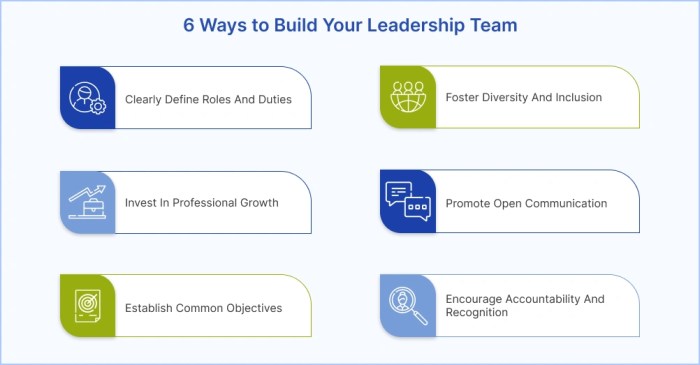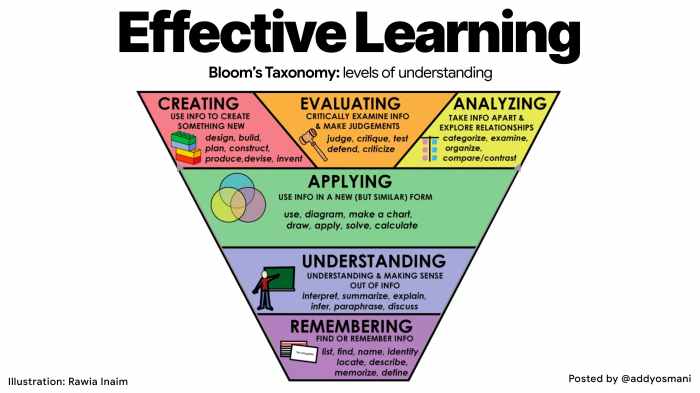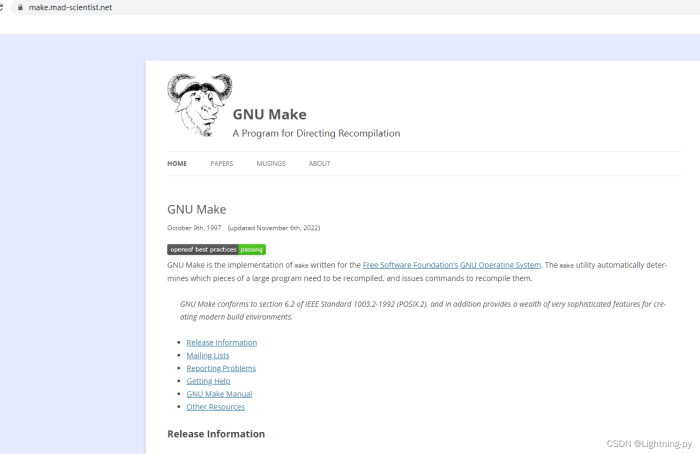How learning different things can aid exponential growth in your expertise is a journey of exploration and discovery. This exploration dives deep into interdisciplinary learning, showcasing how diverse skillsets and continuous learning contribute to mastering any field. From understanding different perspectives to leveraging diverse learning styles, the path to expertise is paved with continuous growth and adaptation. It’s about embracing a mindset of lifelong learning, fostering creativity, and ultimately, reaching your full potential.
We’ll explore the power of interdisciplinary approaches, examining how combining seemingly disparate fields like science and art can foster innovative problem-solving. We’ll also discuss the value of soft skills and how they complement technical expertise, highlighting how communication and critical thinking are crucial for expert-level proficiency. The journey emphasizes the vital role of continuous learning, adaptation, and resilience in maintaining and expanding your expertise.
We’ll delve into various learning styles and methods, providing insights into tailoring your learning strategies to maximize comprehension. Finally, we’ll examine the importance of cross-functional collaboration and the impact of failure as a catalyst for growth.
Interdisciplinary Learning
Interdisciplinary learning goes beyond the confines of a single subject, fostering a more holistic and nuanced understanding of the world. It recognizes that knowledge is interconnected and that exploring different fields can illuminate hidden connections and lead to innovative solutions. By combining seemingly disparate areas of study, we can develop a more profound comprehension of complex issues.Interdisciplinary learning approaches subjects with a wider lens, not only looking at the specific elements within a discipline but also at the broader context and the relationships between different fields.
This interconnected view is crucial for tackling multifaceted problems that require a synthesis of diverse perspectives. For example, understanding climate change requires knowledge from science, economics, sociology, and even the humanities to grasp the full complexity of the issue.
Examples of Interdisciplinary Success
Interdisciplinary approaches have proven invaluable in driving advancements across various fields. Marie Curie’s work, for example, seamlessly blended chemistry and physics to revolutionize our understanding of radioactivity. Her meticulous research in both fields led to groundbreaking discoveries, showcasing how a combination of scientific disciplines can unlock profound insights. Similarly, Leonardo da Vinci, a true Renaissance man, integrated art, science, engineering, and anatomy in his work.
His sketches and inventions demonstrate the power of interdisciplinary thinking to inspire innovation.
Different Perspectives and Innovative Problem Solving
Different perspectives, drawn from various fields of study, can significantly enhance problem-solving strategies. A scientist might approach a problem with rigorous methodology, while an artist might offer unique aesthetic interpretations. Combining these perspectives allows for a more comprehensive evaluation of the issue and the development of novel solutions. For example, in urban planning, integrating sociological insights on community needs with architectural knowledge on space design can lead to more effective and inclusive city layouts.
Applying Knowledge from Diverse Fields to a Specific Problem
Consider a problem in sustainable agriculture. To develop sustainable agricultural practices, one could draw upon biological principles (e.g., plant growth, soil health), economic models (e.g., market analysis, resource allocation), and even sociological considerations (e.g., community needs, social impact). By merging these insights, we can craft solutions that address the multifaceted challenges of sustainable food production, maximizing both ecological and economic benefits.
Specialized vs. Interdisciplinary Learning
| Feature | Specialized Learning | Interdisciplinary Learning | Comparison |
|---|---|---|---|
| Focus | Deep understanding within a single field | Comprehensive understanding across multiple fields | Specialized learning focuses on a single subject while interdisciplinary learning combines multiple subjects. |
| Strengths | Expertise in a particular domain; detailed knowledge | Broader perspective; innovative problem-solving; ability to connect seemingly disparate concepts; synthesis of different approaches | Specialized learning excels in depth, while interdisciplinary learning excels in breadth and innovative thinking. |
| Weaknesses | Limited perspective; potential for tunnel vision; difficulty in seeing the bigger picture; potential for neglecting other relevant fields | Potential for superficial understanding of each field; difficulty in mastering the technicalities of each subject; challenges in integrating different methodologies | Specialized learning might miss crucial connections, while interdisciplinary learning might lack depth in each subject. |
| Examples | A highly trained surgeon, a leading astrophysicist | An urban planner who understands both architecture and sociology; a biomedical engineer combining biology and engineering | Specialized fields focus on specific knowledge areas, while interdisciplinary fields seek to connect those areas. |
Building Expertise Through Diverse Skillsets
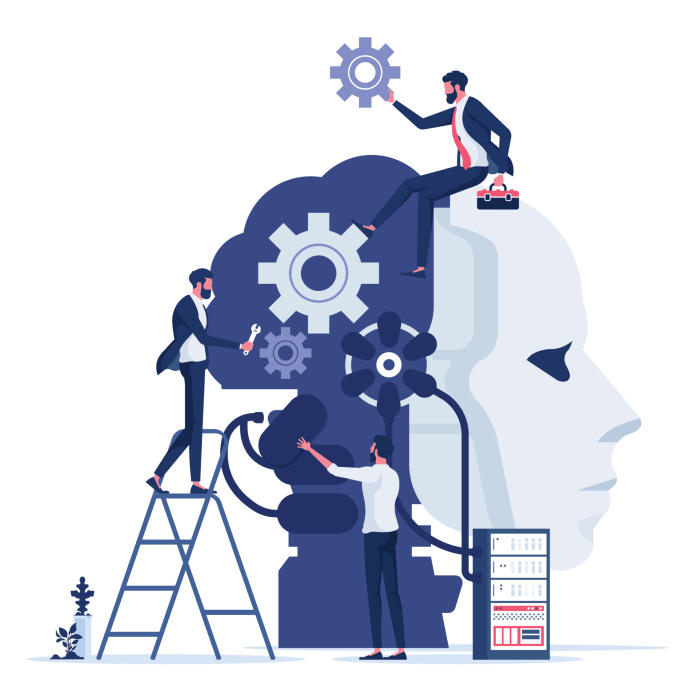
A crucial aspect of professional growth lies in cultivating a multifaceted skillset. While technical expertise is undeniably important, the ability to communicate effectively, think critically, and solve problems creatively are equally vital. These “soft skills,” when combined with specialized knowledge, lead to a more well-rounded and impactful professional. A comprehensive approach allows for adaptation to changing circumstances and a more substantial contribution to one’s field.Developing expertise isn’t just about mastering a single domain; it’s about integrating diverse skills.
This integration creates a synergistic effect, allowing individuals to approach challenges with a wider range of perspectives and solutions. A robust skillset fosters adaptability, enabling professionals to excel in dynamic environments and contribute significantly to their respective fields.
The Value of Multiple Skills
A comprehensive skillset is essential for professional growth. Strong communication skills, critical thinking, and problem-solving abilities are crucial for navigating complex situations and collaborating effectively with others. These abilities are not isolated skills; they are intertwined and enhance each other, leading to a more comprehensive understanding of a field and more robust problem-solving strategies.
Communication Skills and Expertise
Effective communication is the cornerstone of knowledge sharing and collaboration. It encompasses not just verbal expression but also active listening, clear writing, and the ability to tailor communication to different audiences. These are vital for sharing expertise, gaining feedback, and collaborating with colleagues, all of which are critical to professional development. Strong communication skills facilitate the exchange of ideas, enabling individuals to contribute meaningfully to teams and projects.
- Active listening involves paying close attention to what others are saying, both verbally and nonverbally, to fully understand their perspective. This improves comprehension and promotes empathy.
- Clear writing skills are important for documenting ideas, sharing information, and creating reports. Precise and concise writing ensures that information is easily understood and acts as a valuable reference.
- Adapting communication styles for different audiences ensures the message is received effectively. Tailoring communication to different individuals or groups maximizes impact and promotes clarity.
Methods to Improve Communication Skills
Improving communication skills requires a proactive approach. Taking courses, joining clubs, participating in presentations, and seeking feedback from colleagues are all effective methods. Practice is essential. Regular engagement in conversations, presentations, and written communication exercises strengthens these skills over time. Engaging in constructive criticism from others provides valuable insight and helps identify areas for improvement.
Expanding your knowledge base by learning diverse subjects is key to accelerating expertise. It’s about embracing a broader perspective, which, paradoxically, can also lead to understanding why and how to let go of self-pity. This process of acknowledging and releasing negativity can free up mental space for more effective learning and skill development. Ultimately, this diverse approach is crucial for exponential growth in your field of expertise.
Developing and Honing Diverse Skillsets
Developing and honing diverse skillsets is a continuous process. Consistent effort and a commitment to learning are vital. This requires setting goals, seeking out opportunities for improvement, and regularly evaluating progress.
| Skillset | Learning Goals | Practice Methods | Evaluation Metrics |
|---|---|---|---|
| Communication | Develop active listening, clarity in written and verbal communication, and adaptability in communication style. | Join Toastmasters, participate in group discussions, and write different kinds of documents. | Seek feedback from peers and mentors, track improvements in presentations and written work. |
| Critical Thinking | Develop analytical skills, evaluate information objectively, and identify biases. | Engage in debates, solve case studies, and read diverse perspectives. | Analyze the validity of arguments, evaluate solutions to problems, and identify potential flaws in reasoning. |
| Problem-Solving | Identify problems, generate solutions, and evaluate outcomes. | Engage in puzzles, solve real-world problems, and explore different approaches to problem resolution. | Track the effectiveness of solutions, evaluate the outcomes of problem-solving attempts, and analyze the efficiency of implemented strategies. |
Soft Skills Complementing Technical Expertise
Soft skills are often undervalued but are critical in enhancing technical expertise. Strong communication skills allow technical professionals to articulate complex ideas clearly and concisely. Critical thinking enables them to analyze problems from different perspectives and devise innovative solutions. Problem-solving skills allow them to navigate challenges and adapt to new situations. The combination of technical proficiency and strong soft skills creates a highly effective and versatile professional.
This combination empowers individuals to contribute more effectively to teams, leading to greater impact and professional success.
The Role of Continuous Learning
Staying ahead in any field requires a commitment to ongoing learning. Expertise isn’t a static destination; it’s a dynamic journey that demands continuous development and adaptation. This is particularly true in rapidly evolving sectors, where new technologies and methodologies emerge constantly. Without actively seeking new knowledge and refining existing skills, even the most seasoned experts can quickly find themselves lagging behind.Continuous learning isn’t just about acquiring new facts; it’s about developing a mindset of curiosity, critical thinking, and adaptability.
It fosters a deeper understanding of the interconnectedness of different concepts, leading to a more holistic and comprehensive perspective. This proactive approach to learning allows professionals to tackle complex challenges with greater insight and creativity.
Maintaining Expertise Through Ongoing Learning
Maintaining a high level of expertise requires a consistent effort to update knowledge and refine skills. This ongoing learning process allows professionals to adapt to new challenges and remain competitive in their respective fields. It is an iterative cycle of acquiring new information, practicing existing skills, and reflecting on experiences to improve performance.
Examples of Experts Who Continuously Learn
Many successful professionals exemplify the importance of continuous learning. For example, Bill Gates, a visionary in the tech industry, has consistently sought out new knowledge and perspectives throughout his career, remaining at the forefront of innovation. Similarly, successful entrepreneurs often attend workshops, conferences, and online courses to stay ahead of the curve in their industry. These individuals understand that staying updated on industry trends is critical for sustained success.
Staying Updated with Advancements
Staying current with advancements in a field is paramount for maintaining expertise. The pace of technological change and methodological refinement is often rapid, and ignoring these developments can lead to a significant knowledge gap. For example, in the medical field, new diagnostic tools and treatments are constantly being developed, requiring healthcare professionals to stay informed to provide the best possible care.
Approaches to Continuous Learning
Various approaches can be employed to facilitate continuous learning. One method involves actively seeking out new knowledge through online courses, workshops, and conferences. Another approach emphasizes practical application through hands-on projects and real-world scenarios. Finally, a crucial element is reflection on past experiences, identifying areas for improvement, and adapting future strategies accordingly. This iterative cycle of learning, practicing, and reflecting is fundamental to maintaining expertise.
Resources for Ongoing Learning
Numerous resources are available for continuous learning across diverse fields. These resources provide opportunities to deepen knowledge and expand skill sets.
- Online Courses: Platforms like Coursera, edX, and Udemy offer a wide range of courses on various subjects, enabling individuals to learn at their own pace and convenience. These courses cover everything from coding to business strategy, providing valuable skills and knowledge in diverse fields.
- Workshops and Seminars: Many organizations and institutions conduct workshops and seminars to help professionals stay updated on current trends and techniques. These practical sessions offer hands-on learning experiences, allowing participants to gain practical skills and knowledge through direct application.
- Conferences and Industry Events: Attending industry conferences and events is a crucial way to network with other professionals, gain insights into current trends, and learn about new developments in a particular field. These events foster collaboration and knowledge exchange, offering valuable insights and connections.
- Journal Publications and Research Papers: Staying abreast of new research and publications is essential for professionals seeking to stay updated on advancements in their field. By reviewing relevant publications, professionals can stay current with the latest research and methodologies.
Leveraging Different Learning Styles
Unlocking your full potential in learning requires understanding and embracing your unique learning style. Recognizing how you best absorb information is crucial for maximizing retention and efficiency. Different individuals learn in various ways, and this understanding can significantly impact your learning journey. Approaching learning with a versatile mindset opens doors to greater comprehension and lasting knowledge.
Understanding Learning Styles
Different learning styles represent distinct approaches to acquiring and processing information. Recognizing your dominant learning style allows you to tailor your study methods to optimize knowledge retention. This approach leads to a more engaged and effective learning process.
Expanding your knowledge base is key to unlocking exponential growth in your expertise. Learning new things, whether it’s a new language or a new skill like cooking, opens up new perspectives and connections. And, for those battling mental health challenges, exploring natural ways to fight depression, like mindfulness or herbal remedies, can be surprisingly beneficial. Finding balance in different areas of life, from your mental health to your expertise, can ultimately lead to faster and more profound learning and growth.
This holistic approach to learning different things empowers you to become more well-rounded and effective in your endeavors. natural ways to fight depression
Identifying Your Learning Style
Identifying your primary learning style involves introspection and self-assessment. Consider how you prefer to engage with material and which methods help you retain information most effectively. By understanding your strengths and preferences, you can create a personalized learning strategy that complements your natural aptitude.
Adjusting Learning Strategies
Once your learning style is identified, you can adjust your learning strategies accordingly. This involves exploring diverse methods and adapting them to align with your preferences. For instance, if you’re a visual learner, incorporating diagrams, charts, and images into your study materials can significantly enhance comprehension.
Diverse Learning Styles and Methods
Visual learners thrive on seeing information presented through images, diagrams, and videos. Auditory learners benefit from lectures, discussions, and listening to recordings. Kinesthetic learners prefer hands-on activities, experiments, and practical applications. A combination of these styles often yields the best results.
Learning Style Examples and Applications
| Learning Style | Description | Example | Learning Strategies |
|---|---|---|---|
| Visual | Learns best through seeing and visualizing information. | Creating mind maps, using diagrams, watching videos. | Use flashcards with images, create visual summaries, utilize graphs and charts. |
| Auditory | Learns best through listening and hearing information. | Attending lectures, participating in discussions, listening to audio recordings. | Record lectures, participate in study groups, summarize information aloud. |
| Kinesthetic | Learns best through doing and experiencing. | Hands-on experiments, role-playing, building models. | Conduct experiments, build prototypes, practice real-world applications. |
| Reading/Writing | Learns best through reading and writing. | Taking notes, reading textbooks, writing summaries. | Create detailed notes, write essays, practice outlining. |
The Impact of Failure and Adaptation
Embarking on a journey of continuous learning often involves navigating through unexpected challenges and setbacks. Failure, though often perceived negatively, is a crucial component of the learning process. Mastering any field, be it coding, music, or business, requires not only acquiring knowledge but also developing resilience and the ability to adapt to unforeseen circumstances. This adaptability is often forged in the crucible of failure.The path to expertise is rarely a smooth one.
It’s a process of trial and error, where mistakes are inevitable and provide valuable insights into areas needing improvement. Experts, regardless of their field, have all encountered moments of frustration and defeat. Their ability to learn from these experiences is what distinguishes them. This exploration delves into the vital role of failure and adaptation in building expertise.
Mistakes as Learning Opportunities
Learning from mistakes is not simply about avoiding repetition; it’s about dissecting the underlying reasons for the error. By meticulously analyzing the factors that led to a failure, we gain a deeper understanding of the concepts and processes involved. This analysis provides a clearer perspective, allowing for more informed decision-making in future endeavors. This introspective approach is crucial in any area of expertise.
Expanding your knowledge base is key to boosting expertise exponentially. Learning diverse subjects, from aromatherapy techniques like those in for busy people the complete guide using lavender oil , to coding or historical analysis, can unlock hidden connections and accelerate your growth. This multi-faceted approach fosters a deeper understanding, leading to more innovative and impactful results.
Examples of Experts Who Overcame Setbacks
Numerous individuals throughout history have demonstrated the power of resilience and adaptation in overcoming significant obstacles. Consider Thomas Edison, whose countless failed attempts at inventing the light bulb were often dismissed as failures. Yet, each failure provided valuable data, allowing him to refine his approach until he achieved success. Similarly, Marie Curie’s persistent research, despite facing numerous setbacks and societal biases, led to groundbreaking discoveries in radioactivity.
These examples illustrate the transformative power of learning from failures and persistent dedication.
Analyzing Mistakes for Improvement
A structured approach to analyzing mistakes is essential for maximizing their learning potential. This involves:
- Identifying the specific actions or decisions that contributed to the failure.
- Understanding the underlying reasons for these actions (e.g., lack of knowledge, poor planning, inadequate resources).
- Evaluating the impact of each factor on the outcome.
- Formulating specific, actionable steps for improvement, addressing the root causes of the failure.
Adapting to New Challenges, How learning different things can aid exponential growth in your expertise
The ability to adapt to new challenges is crucial for sustained growth. The landscape of expertise is constantly evolving, demanding continuous learning and adaptation. This adaptability involves:
- Developing a flexible mindset that embraces change.
- Actively seeking out new information and perspectives.
- Embracing the learning process as a continuous cycle of experimentation, refinement, and adaptation.
Developing Resilience
Resilience is the ability to bounce back from adversity. Cultivating resilience is essential for navigating the inevitable challenges encountered during the learning process. Strategies for developing resilience include:
- Building a strong support network of mentors, colleagues, and friends.
- Practicing mindfulness and stress-reduction techniques to manage emotional responses to setbacks.
- Focusing on personal strengths and past successes to build confidence.
- Adopting a growth mindset, viewing challenges as opportunities for learning and development.
Cross-Functional Collaboration
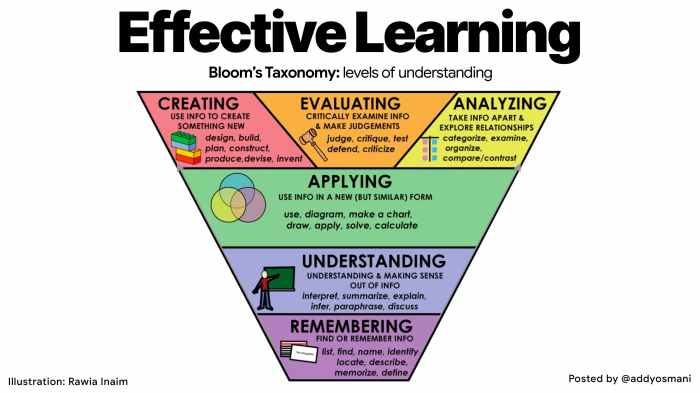
Cross-functional collaboration is a powerful catalyst for innovation and growth. It transcends departmental silos, fostering a dynamic exchange of ideas and expertise. By bringing together individuals with diverse backgrounds and skillsets, organizations can tap into a wider range of perspectives, leading to more comprehensive solutions and accelerated progress. This collaborative approach is particularly crucial in today’s complex and rapidly evolving business landscape.Effective cross-functional collaboration is not simply about bringing people together; it’s about creating a synergy where diverse skillsets complement each other, leading to a richer understanding of the problem and a wider array of potential solutions.
This synergy, in turn, accelerates learning and expertise development for all involved.
Successful Cross-Functional Projects and Teams
Cross-functional teams excel when they effectively leverage the strengths of their members. A strong example of this lies in the development of new product lines, where engineers, marketers, and designers collaborate to create a product that meets market demands. A successful product launch often relies heavily on this kind of cross-functional teamwork, requiring a unified understanding of user needs, technical capabilities, and market trends.
Challenges of Cross-Functional Collaboration
Despite its advantages, cross-functional collaboration presents inherent challenges. Different work styles, communication preferences, and priorities can sometimes lead to misunderstandings and conflicts. Establishing a common understanding and shared vision is essential to navigate these obstacles. Strong leadership and clear communication protocols are crucial in overcoming these challenges.
Importance of Effective Communication and Collaboration
Effective communication and collaboration are the cornerstones of successful cross-functional projects. Clear communication channels, regular meetings, and well-defined roles and responsibilities are essential. A shared understanding of project goals and individual roles minimizes confusion and fosters a collaborative environment where everyone feels valued and empowered to contribute. Shared goals and a unified vision are key to achieving optimal results.
Examples of Successful Cross-Functional Collaboration
Successful cross-functional collaboration transcends specific industries. The ability to effectively leverage diverse skillsets, foster open communication, and establish clear roles and responsibilities is key to achieving a common goal. A structured approach to collaboration is crucial for success.
| Industry | Project/Team | Key Skills | Outcome |
|---|---|---|---|
| Software Development | Development of a new mobile banking app | Software engineering, UX/UI design, marketing, finance | Increased user engagement, enhanced security, improved user experience, increased revenue |
| Healthcare | Developing a new treatment protocol for a chronic disease | Medical professionals, data scientists, researchers, patient advocates | Improved patient outcomes, reduced treatment costs, enhanced understanding of disease mechanisms |
| Automotive | Designing a self-driving car | Engineers, software developers, data scientists, roboticists | Enhanced safety, improved efficiency, and reduced traffic congestion |
| Aerospace | Development of a new generation of aircraft | Engineers, pilots, technicians, materials scientists | Improved fuel efficiency, reduced maintenance costs, enhanced safety, and improved passenger comfort |
Wrap-Up: How Learning Different Things Can Aid Exponential Growth In Your Expertise
In conclusion, achieving expertise isn’t about specialization alone; it’s about embracing the richness of diverse knowledge and skills. By fostering interdisciplinary thinking, developing a range of competencies, and embracing continuous learning, you pave the way for exponential growth. Remember, your journey to expertise is a dynamic process of learning, adapting, and growing. Embrace the challenges, celebrate the successes, and never stop learning.

